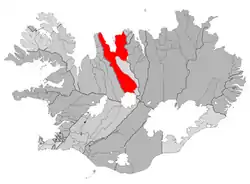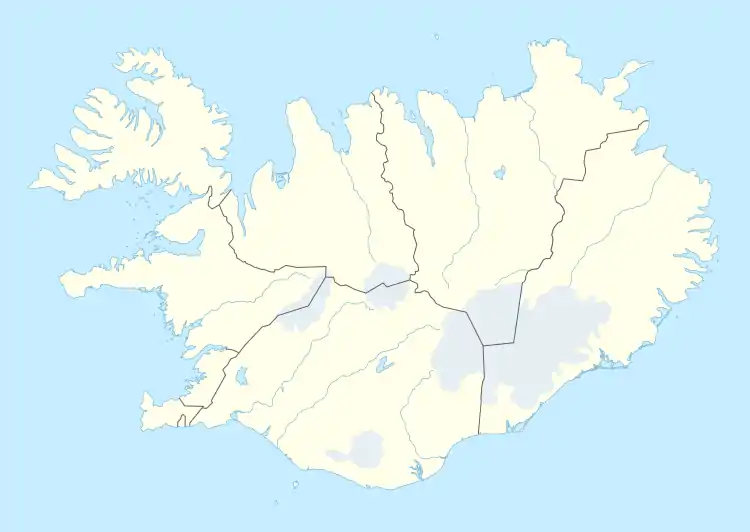Hofsós
Hofsós is one of the oldest trading ports in northern Iceland dating back to the 16th century. The tiny village Hofsós in the Northern Region in Iceland was a rather busy trading post in the 17th and 18th century, but despite the merchant activities this small village did not develop into a larger village or a town in the 20th century. Hofsós had all the historical prerequisites to become a large town. It was a trading post for the Danish Trade Monopoly, it was not far away from the fishing grounds, it was central in the region, and it had a relatively good landing spot for boats. [1] The Drangey Exhibition is in Pakkhús, the Hofsós warehouse built in 1777, during the time of the trading monopoly. Massacre hill farm (Mannskaðaholl) at the south end of Lake Höfðavatn, is named for the massacre of English marauders, which took place there in 1431.[2][3] Other services offered are accommodation in guesthouses, a restaurant, coffee-house, and a camping site. There are also pleasant walks along the shore with good examples of hexagonal basalt columns. Thorðarhöfði headland rises like an island some distance from the main shore. It is connected to land by low sandpits impounding a considerable lake with rich bird life and good trout fishing.[4]
Hofsós | |
|---|---|
Village | |
 Location of the Municipality of Skagafjörður | |
 Hofsós Location of the Municipality of Skagafjörður | |
| Coordinates: 65°54′N 19°26′W | |
| Country | |
| Constituency | Northwest Constituency |
| Region | Northwestern Region |
| Municipality | Skagafjörður |
| Population (January 2011) | |
| • Total | 190 |

Overview
Hofsós, with a population of about 200 individuals, is located 37 km east from Sauðárkrókur. The economy has been based mainly on the fishing industry as well as services to the neighboring farms. This was largely due to its natural harbor. In recent years Hofsós has built itself up as a tourist attraction and has The Icelandic Emigration Center (Vesturfarasetrið á Hofsósi), dedicated to the westward migration to North America of Icelanders that reached its peak at the start of the 19th century.
References
- "Hit Iceland information page about Iceland"
- History of the Center (The Icelandic Emigration Center) Archived 2011-07-22 at the Wayback Machine
- "Mannskaðahóll (Historical Places in Northwest Iceland)". Archived from the original on 2011-07-22. Retrieved 2011-02-26.
- "Hofsós (Historical Places in Northwest Iceland)". Archived from the original on 2011-07-22. Retrieved 2011-02-26.